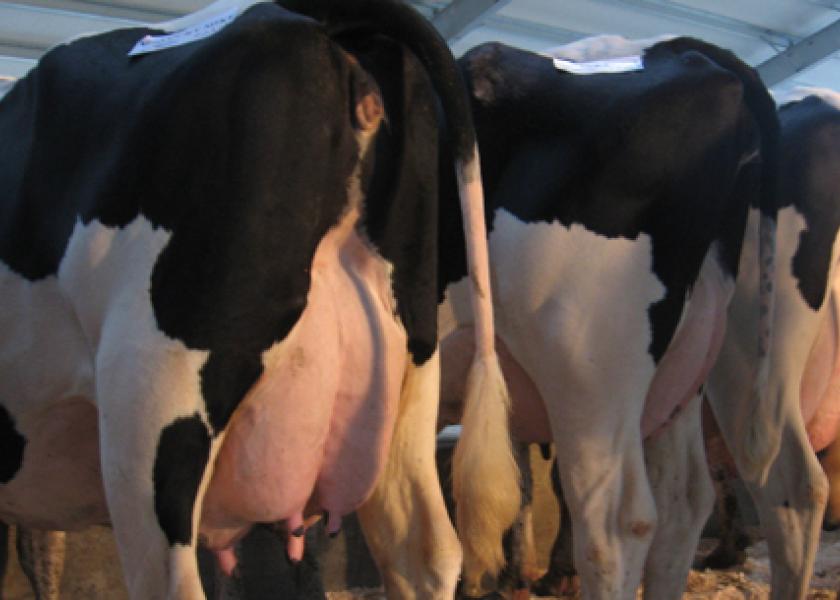Texas-Sized Problems Hit the Lone Star State, but Ag Commissioner says ‘Things are Getting Better’

Already this year, farmers and ranchers based in the Texas Panhandle have dealt with some Texas-sized problems that have impacted their livelihoods.
In March, the Smokehouse Creek Fire burned more than a million acres and killed thousands of cattle, primarily in the Panhandle and in Oklahoma.
Cal-Maine Foods, the largest producer and distributor of fresh shell eggs in the U.S., announced on Tuesday that chickens at its facility in the southwest part of the Texas Panhandle, in Parmer County, tested positive for highly pathogenic avian influenza (HPAI). As a result, Cal-Maine had to cull nearly 2 million chickens − 1.6 million hens and 337,000 pullets.
Dairy producers in the Texas Panhandle have also grappled with outbreaks of HPAI in their cow herds in recent weeks. To date, the USDA has confirmed the H5N1 strain of HPAI in dairy cattle on seven Texas farms.
In addition, one dairy worker has contracted an HPAI infection and displayed mild symptoms, the Texas Department of Health and Human Services reported Monday.
“It’s a mild, mild case and the only symptom he had was pinkeye,” Sid Miller, state commissioner of the Texas Department of Agriculture, told AgriTalk Host Chip Flory on Thursday. Miller said it’s unknown how the individual was infected.
You can listen to their conversation here:
What’s Going To Happen Next?
Flory asked Miller whether he believes state agriculture department investigators are in front of the latest issues with HPAI in dairy cattle.
“I think so,” Miller replied. “We’ve got about 10 months before the ducks and geese come back, so I think we’ll have it figured out by then.”
Miller speculated that waterfowl caused the dairy and poultry HPAI infections.
“Cowboy logic would tell you that cattle were drinking from the same ponds where waterfowl were present,” he said. “Or, maybe waterfowl had been in the feed boxes eating grain or something (along those lines). So, we've got to take better biosecurity measures to make sure that we eliminate all those possibilities.”
Despite the challenges Texas agriculture has faced the past few months, Miller is cautiously optimistic.
"Things are turning around and getting better. They really are," he said.
One concern the livestock industry has now is whether HPAI will impact beef cattle at some point.
“You've seen what's happened in the cattle markets,” Flory said. “They're looking at it like this is a major problem for beef.”
Miller replied that he doesn’t anticipate there will be an HPAI problem in Texas beef cattle, which consist primarily of feedlot cattle in the Panhandle.
“The cattle that get it are the older lactating cows, and we don't have those in the feedlot,” Miller said. “I think we're OK, but we're certainly going to research that.”
Food Safety Precautions
Miller said one of the Texas Department of Agriculture’s primary responsibilities is to make sure food produced in the state is safe for consumers. None of the affected milk, meat or eggs ever reached the marketplace.
“If you want to take some precautions, you might lay off the raw milk and unpasteurized dairy products, because that's about the only way (HPAI) could get there,” Miller said. “But it's not in the food chain. It's not going to create a shortage of milk and dairy products. There's no shortage of eggs. So, consumers, just rest assured. Don't be alarmed. This is really not going to affect you.”
In a statement last week, the Centers for Disease Control said it considers the human health risk to the U.S. public from the virus to be low, though people who work with livestock are at higher risk of infection. The agency also advised against eating unpasteurized dairy products, such as raw milk or cheese, from animals with suspected or confirmed cases of HPAI.
More news on HPAI is available here:
Rare Human Case of Bird Flu Confirmed. Officials Believe it Began on Texas Dairy
HPAI Now Detected on Ohio Dairy: Strange Bird Flu Concerns See Growth
New Regulation: Dairy Cattle Entry into Nebraska Now Requires Permit Amid HPAI Bird Flu Concerns
Twelve Cases of HPAI in Dairy Cattle Confirmed in Five States







